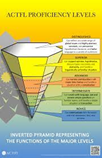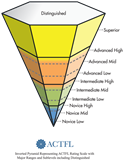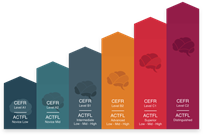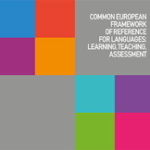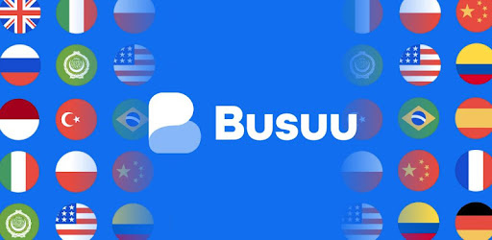Language Resources for Expats
Would you like to know just how hard it will be for you as an English speaker to learn your new language? Do you want to know your foreign language proficiency level? Would you like to know what the language requirements are for gaining citizenship in your host country? Luckily, the Internet makes foreign language learning an achievable task. There are many resources online, especially for those looking to become fluent in Spanish and French.
LANGUAGE DIFFICULTY LEVELS
Learn Your Language Difficulty Level

Visit the FSI Website to determine the difficulty level of the language you want to learn.

TESTS
II. Test Your Foreign Language Level and Proficiency
There are two institutions who are the official authority in foreign language testing and learning, the Common European Framework of Reference (CEFR) for languages and the American Council on the Teaching of Foreign Languages (ACTFL). These institutions not only test your proficiency and issue certifications but offer foreign language training for teachers, curriculum development, as well as the development of foreign language assessment standards.
A: CEFR
https://www.coe.int/en/web/common-european-framework-reference-languages
The CEFR is available in 40 languages.
The CEFR describes foreign language proficiency at six levels: A1 and A2, B1 and B2, C1 and C2. It also defines three ‘plus’ levels (A2+, B1+, B2+)
Also, LIAM (Linguistic Integration of Adult Migrants https://www.coe.int/en/web/lang-migrants

B: ACTFL
C. Interpreting CEFR and ACTFL Scores
(Unofficial Tests- no certificate)
- Tests for Arabic, Italian, German and Spanish
- Quizzes in over hundred languages
- Culture Quizzes for Arabic, French, Greek, Russian, and Spanish
Applying for Citizenship
Example:Spain
The benefits of becoming a citizen are many. Here are a few:
If you receive citizenship from Spain, you have access to many European nation which minimizes the need to carry lots of documents as you travel across Europe
- Citizenship gives you the ability to take part in political activities such as voting
- You will officially becoming part of the community you have adopted
- You will have the freedom and privilege to live and work
- Becoming a permanent may even enable your family members to also obtain permanent residency
- You may even be able to adopt a child
- You may be able to purchase property that foreigners may not have access to
- You may be able to keep your home-country national and have dual citizenship, ie, two passports.
- This new passport will allow you to visit countries restricted by the US such as Cuba
- You can enjoy the national health insurance programs
Applying for Spanish citizenship: preparing to take the Diplomas de Español como Lengua Extranjera (DELE) and Constitutional and Sociocultural Knowledge (CCSE) tests
One of the most important steps in applying to become a Spanish citizen is taking the Nationality Test. This test comprises two halves – the Language Test (DELE) and the Cultural Test (CCSE).
DELE and CCSE
Sample Citizenship Tests
If you want to get a sample of the types of questions or content on these tests you can do a quick Google search to find sample tests for your country.
Some popular non English-speaking expat destinations
Details
Language Requirement: Spanish
URL of Sample Test Questionsa:
https://yucalandia.com/2018/08/21/update-to-mexicos-naturalized-citizenship-exam-requirements/

Mexico
Details
Language Requirement: Spanish
URL of Sample Test Questionsa:
Website:
https://kraemerlaw.com/es/inmigracion/ciudadania-panamena/

Details
Language Requirement: Spanish
URL of Sample Test Questionsa:
https://www.gob.ec/mremh/tramites/obtencion-nacionalidad-ecuatoriana-carta-naturalizacion
Website:
https://www.cpccs.gob.ec/wp-content/uploads/2017/01/preguntas-con-respuestas.pdf

Details
Language Requirement: Spanish
URL of Sample Test Questionsa:
http://servicios.dominicana.gob.do/servicio.php?id=221

Details
Language Requirement: Spanish
URL of Sample Test Questionsa:
http://www.exteriores.gob.es/portal/es/serviciosalciudadano/informacionparaextranjeros/paginas/nacionalidad.aspx

Details
Language Requirement: Spanish
URL of Sample Test Questionsa:
https://www.cancilleria.gov.co/tramites_servicios/nacionalidad

Details
Language Requirement: Spanish
URL of Sample Test Questionsa:
https://www.migracion.go.cr/Paginas/Categor%C3%ADa%20Migratorias%20(Extranjer%C3%ADa)/Personas-Extranjeras.aspx

Details
Language Requirement: Portuguese
URL of Sample Test Questionsa:
https://www.portugalist.com/get-portuguese-nationality/

Details
Language Requirement: Italian
URL of Sample Test Questionsa:
https://www.italiandualcitizenship.net/how-to-become-an-italian-citizen/

Details
Language Requirement: French
URL of Sample Test Questionsa:
https://www.expatica.com/fr/moving/visas/french-citizenship-107626/
Website:
https://frenchips.fr/apps/citizenshipquiz/mainmenu.php

Details
Language Requirement: Thai
URL of Sample Test Questionsa:
https://visaguide.world/tips/becoming-a-citizen-of-thailand/
Website:
https://www.thaicitizenship.com/thai-civics-knowledge-test/

Books and Online Resources
There are many but here are a few of my favorites to get you started.
Books About Second Language Acquisition Process
General foreign language learning
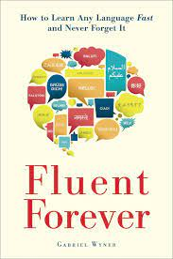
Fluent Forever by Gabriel Wyner
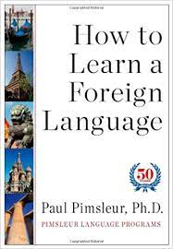
How to Learn a Foreign Language by Paul Pimsleur, PhD
Books About Raising Bilingual Children
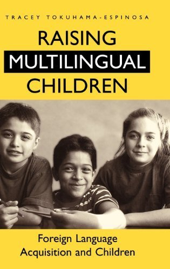
Raising Multilingual Children by Tracey Tokuhama-Espinosa
Phrase Books for Raising Children Bilingually
52 Weeks of Family Language Series
by Eileen Mcaree
(Available in other languages: Chinese, French, German, Italian, Japanese)

Raising Multilingual Children by Tracey Tokuhama-Espinosa

Raising Multilingual Children by Tracey Tokuhama-Espinosa
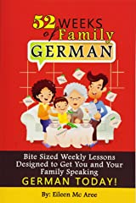
Raising Multilingual Children by Tracey Tokuhama-Espinosa
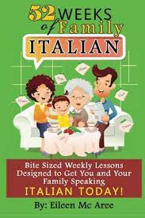
Raising Multilingual Children by Tracey Tokuhama-Espinosa
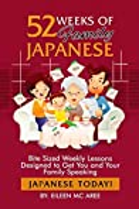
Raising Multilingual Children by Tracey Tokuhama-Espinosa
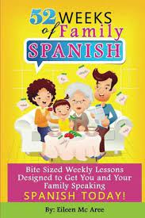
Raising Multilingual Children by Tracey Tokuhama-Espinosa
Spanishmama.com has an impressive list of books and resources for parents
raising children bilingually www.spanishmama
Language Learning Podcasts with English Transcripts
Listen to native speakers as they read the national and world news ‘slowly’. Transcripts are provided so that you can follow along as the text is read. A great tool for all levels that helps build vocabulary, pronunciation, as well as and reading and listening skills.





Foreign Language Learning Websites/ Apps
Online Foreign Language Games:
There are a plethora of language learning resources on the market. Here are some of my favorite resources that I have used over the years as a Spanish teacher and mother of two multilingual children.
www.kahoot.com
Purposegames.com
Quizlet.com
K-12 Games for Language Learning Websites

